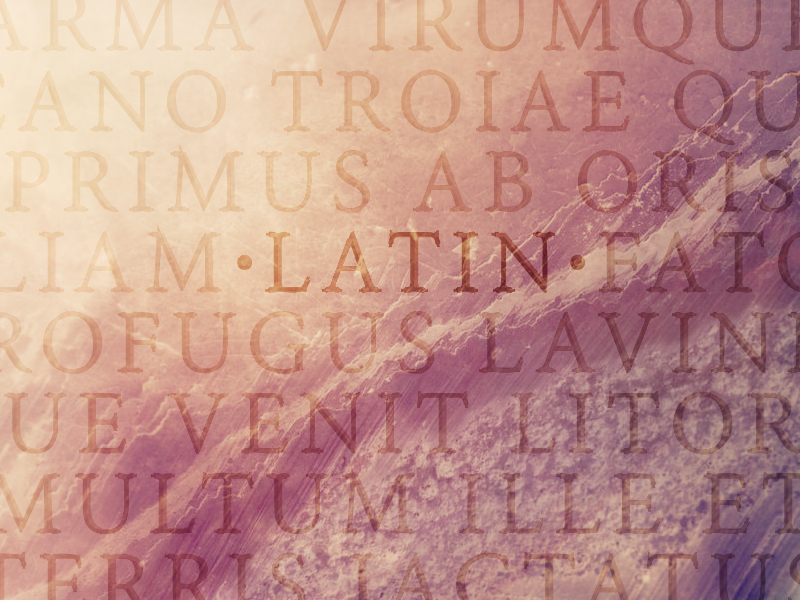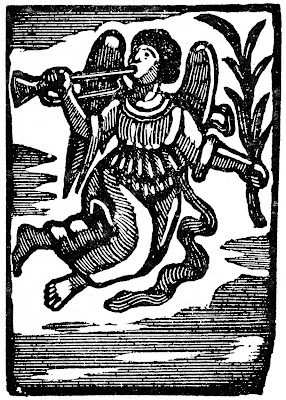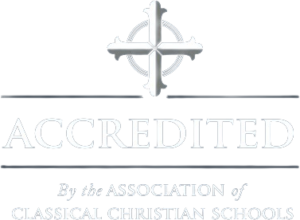One characteristic of any school that calls itself “classical Christian” is the teaching of Latin. Providence students begin learning Latin in 4th grade, and they continue to study Latin into Rhetoric School. Why? Are we stubbornly clinging to an obsolete language out of some elitist commitment to rigor? You know, ivy on the walls, dead language on the page, misery in the students, and dust in the crevices of the teacher’s face?
Not at all!
By teaching Latin, Providence Classical Christian School is on the cutting edge of an educational renaissance that is taking us back to the future. By returning to the old ways of teaching Latin, our school is training and habituating students to reason well, to think differently, and, ultimately, to make a difference for Christ in the culture of the future.
Why teach and learn Latin?
Cheryl Lowe at Memorial Press does a great job of succinctly answering that question. I hope her words help you think it through for yourself, and also equip you to answer that question when others inevitably ask.
Have you ever wished you had a good answer for those people who ask why you would spend your valuable education time studying Latin when you could be spending it on something more “practical”?
There are three reasons Latin has long been considered the one master subject before which all others must bow.
First, Latin teaches English better than English teaches English. “The study of one’s own language,” says classicist Charles Bennett, “is achieved incomparably better by the indirect method of studying another language … It is because translation from Latin to English … is so helpful to the student who would attain mastery of his own language … that I find the full justification for the study of Latin.” In other words, education based on the study of the child’s own language is inferior to one based on Latin.
Second, the mental discipline Latin instills in students makes it the ideal foreign language to study. Latin originated with the Romans, and their character pervades the language they created. The Roman, says R. W. Livingstone, “disciplined his thought as he disciplined himself; his words are drilled as rigidly as were his legions, and march with the same regularity and precision.”
Latin is systematic, rigorous, analytic. Its sentences march “serried, steady, stately, massive, the heavy beat of its long syllables and predominant consonants reflecting the robust, determined, efficient temper” of the Romans themselves.
Latin is clearly superior to other languages in this regard. Like English, modern languages are “lax and individualistic,” reflecting the modern temper of those who speak them. Thinking that you can get the same benefit out of studying them is, in Livingstone’s words, “like supposing that the muscles can be developed by changing from one chair to the other.”
Third, Latin is the ideal tool for the transmission of cultural literacy. Latin is, in fact, the mother tongue of Western civilization—a language that incorporated the best ideas of the ancient Greeks, and which then, after the conversion of Rome, put them into the service of Christian truth.
Rome fell into ruin, but the dying language of the disintegrating empire was infused with new life. Harnessing the power and precision of the old Latin, Christianity transformed the tongue of conquest into the tongue of conversion, and Latin became the very language of the Christian faith for over a thousand years.
Christian Latin takes the intellectual discipline of classical Latin and adds another element: simplicity. Although the basic grammar and vocabulary of Christian Latin are the same as the classical, Christian Latin authors emphasized the transmission of Christian truth, striving for clarity and simplicity above all else. Because Christian Latin is easier to read, it is the perfect gateway to the more difficult classical Latin of Caesar, Cicero, and Virgil.









